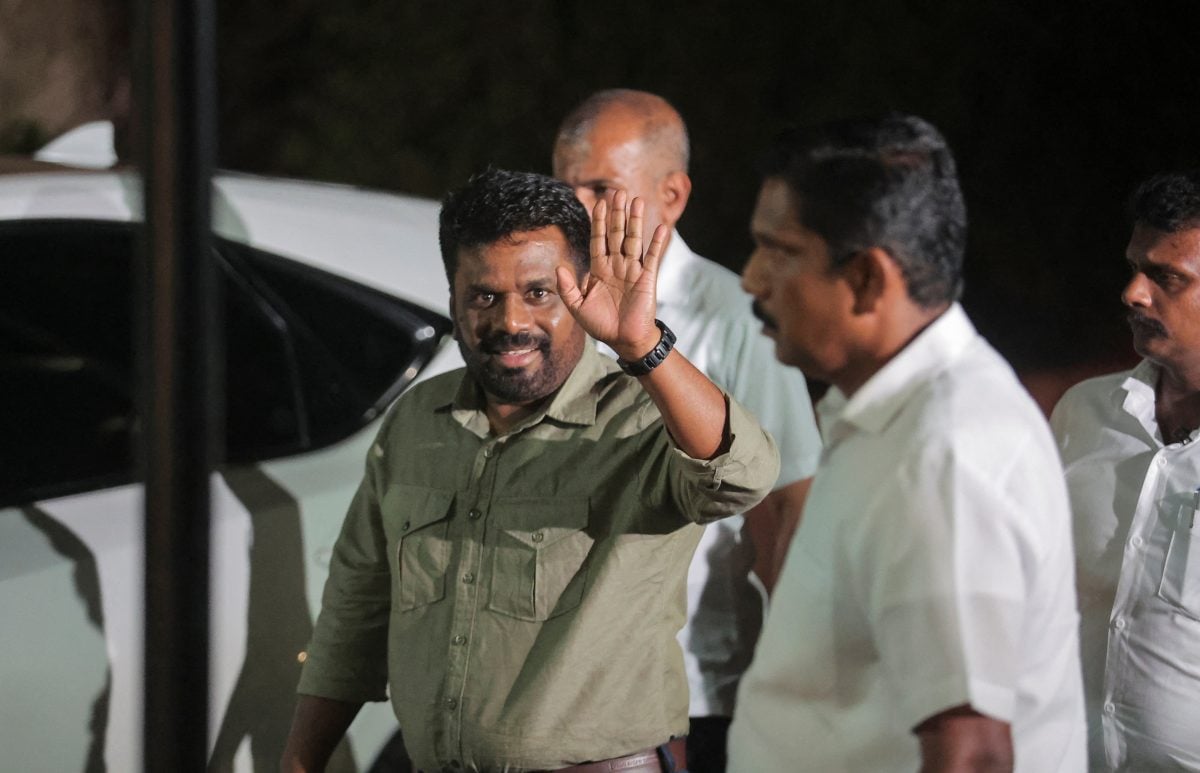COLOMBO, (Reuters) – Sri Lanka elected Marxist-leaning Anura Kumara Dissanayake as its new president today, putting faith in the 55-year-old’s pledge to fight corruption and bolster a fragile economic recovery following its worst financial crisis in decades.
Dissanayake, who does not possess political lineage like some of his rivals in the presidential election, led from start to finish during the counting of ballots, knocking out incumbent President Ranil Wickremesinghe and opposition leader Sajith Premadasa to become Sri Lanka’s 10th president.
The election was also a referendum on Wickremesinghe, who led the heavily indebted nation’s fragile economic recovery from a meltdown in 2022 but the austerity measures that were key to this recovery hindered his bid to return to office. He finished third with 17% of the vote.
Dissanayake polled 5.6 million or 42.3% of the votes, a massive boost to the 3% he managed in the last presidential election in 2019. Premadasa was second at 32.8% after the first round of counting of ballots on Sunday.
It was the first time in Sri Lanka’s history that the presidential race was decided by a second round of counting after the top two candidates failed to win the mandatory 50% of votes to be declared winner.

